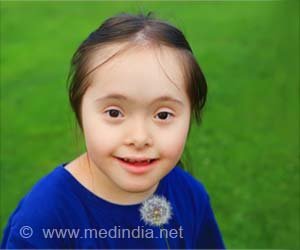End the Stereotypes: World Down Syndrome Day

- ‘End the Stereotypes’ is this year’s theme for World Down Syndrome Day
- By disrupting misconceptions with essential facts and fostering inclusive practices
- Empowering advocacy and embracing diversity through the latest research and community engagement
Down syndrome, a genetic condition, has been a subject of misconceptions and stereotypes for far too long. These stereotypes often overshadow the incredible capabilities and uniqueness of individuals with Down syndrome. It’s time to dismantle these prejudices and foster a society that embraces diversity and inclusion. In this article, we delve into the history, significance, facts, ways to contribute, and the latest research surrounding Down syndrome (1✔ ✔Trusted Source
World Down Syndrome Day
).
Advertisement
World Down Syndrome Day: History
Down syndrome is named after John Langdon Down, a British physician who first described the condition in 1866. However, it wasn’t until 1959 that the genetic basis of Down syndrome was discovered by Dr. Jerome Lejeune. Before this, individuals with Down syndrome were often misunderstood and marginalized, leading to societal stigmatization and institutionalization.
Advertisement
World Down Syndrome Day: Significance
Down syndrome occurs when there is an extra copy of chromosome 21, leading to developmental delays and distinct physical features. Despite these challenges, individuals with Down syndrome lead fulfilling lives, enriching their communities with their talents, resilience, and unique perspectives. It’s crucial to recognize their worth and potential, rather than focusing on their limitations.
Advertisement
Top 5 Facts about Down Syndrome
- Down syndrome is the most common chromosomal disorder, occurring in approximately 1 in every 700 births worldwide.
- People with Down syndrome often have almond-shaped eyes, a flattened facial profile, and a protruding tongue. However, these physical features vary widely among individuals.
- While individuals with Down syndrome may experience cognitive delays, many possess unique strengths in areas such as music, art, and social interaction.
- People with Down syndrome are at a higher risk of certain medical conditions, including congenital heart defects, respiratory issues, and thyroid problems. However, with proper medical care, many of these conditions can be managed effectively.
- Due to advances in healthcare and increased inclusion, the life expectancy of individuals with Down syndrome has significantly improved. Many now live well into their 50s and beyond.
World Down Syndrome Day: How to Contribute?
1. Advocacy:
Speak out against stereotypes and advocate for inclusive policies in education, employment, and healthcare.
2. Education:
Educate yourself and others about Down syndrome to dispel myths and promote acceptance.
3. Support Organizations:
Get involved with organizations like the National Down Syndrome Society or local support groups that provide resources and support to individuals with Down syndrome and their families.
4. Inclusive Practices:
Encourage inclusive practices in your community, workplace, and schools to ensure that individuals with Down syndrome have equal opportunities to thrive.
5. Celebrate Differences:
Embrace diversity and celebrate the unique abilities and contributions of individuals with Down syndrome.
Recent research in Down syndrome has focused on understanding the underlying genetic mechanisms, improving healthcare interventions, and promoting social inclusion. Advances in genetic testing have enabled early diagnosis and personalized treatment strategies for individuals with Down syndrome.
Moreover, studies have highlighted the importance of early intervention programs and inclusive education in improving outcomes for individuals with Down syndrome. Ongoing research holds promise for further enhancing the quality of life and opportunities for individuals with Down syndrome.
It’s time to end the stereotypes surrounding Down syndrome and foster a society that values diversity, inclusion, and acceptance. By understanding the history, significance, and facts about Down syndrome, we can challenge misconceptions and create a world where individuals with Down syndrome are valued for their unique abilities and contributions.
Together, let’s embrace differences and advocate for a more inclusive and compassionate society.
Reference:
- World Down Syndrome Day (WDSD), 21 March, is a global awareness day which has been officially observed by the United Nations since 2012 – (https://www.worlddownsyndromeday.org/)
Source-Medindia
Source link
#Stereotypes #World #Syndrome #Day



